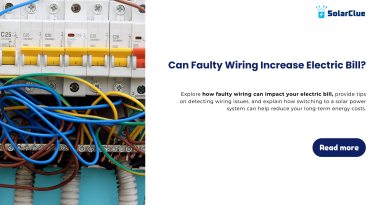1 kW Solar Price in India: Cost and Considerations
The cost of electricity is a crucial factor in every country’s economy. In India, where the population is rapidly increasing, the demand for electricity is also growing at an alarming rate. One of the significant components in an electric bill is the kilowatt-hour (kWh) price. Understanding the 1 kw price in India is essential for individuals and businesses alike. This blog aims to explore the current scenario of electricity prices in India, analyze the factors influencing it, and provide insight into how consumers can make informed decisions regarding energy consumption.
Table of Contents
The Current Scenario
India’s electricity market is diverse and complex, with prices varying across different regions and categories of consumers. The average cost of 1 kWh of electricity in India is approximately 7 to 8 INR (Indian Rupees), but this number can fluctuate significantly based on various factors.
Factors Influencing the 1 kW Price
1. Generation Sources: The primary source of electricity generation in India is coal, followed by hydroelectric, gas, and renewable energy sources. The price of coal and gas, along with the operational costs, can impact the overall price of electricity.
2. Transmission and Distribution Losses: Electricity needs to travel from power plants to consumers, and during this journey, losses occur due to technical and commercial reasons. The higher these losses, the higher the price per kWh to compensate for these inefficiencies.
3. Fuel Costs: The cost of fuels such as coal, natural gas, and crude oil used in power generation plays a significant role in determining electricity prices. Fluctuations in global fuel prices can directly impact the 1 kWh price in India.
4. Renewable Energy Subsidies and Incentives: With the government’s increasing focus on renewable energy sources like solar and wind power, subsidies and incentives are provided to encourage their adoption. These subsidies can influence the overall electricity price.
5. Regulatory Policies: The regulatory framework set by government bodies like the Central Electricity Regulatory Commission (CERC) and the State Electricity Regulatory Commissions (SERCs) also affects the electricity prices. These bodies regulate tariff structures, transmission charges, and other factors that influence the 1 kw price.
6. Demand-Supply Dynamics: The demand for electricity in India is growing rapidly, while the supply struggles to keep up. To balance the demand and supply equation, the prices may increase during peak hours when the demand is high.
7. Geographical Variations: India’s diverse landscape and geographical factors impact the availability and cost of electricity. States with abundant natural resources for power generation may have lower electricity prices than those heavily reliant on imported fuels.
Making Informed Decisions
Being aware of the factors influencing the 1 kW price in India, consumers can make informed decisions to manage their electricity consumption better and control costs. Here are a few tips:
1. Energy Efficiency: Adopting energy-efficient practices such as using energy-saving appliances, turning off idle electronics, and optimizing lighting can significantly reduce electricity consumption and lower bills.
2. Time of Use Tariffs: Some electricity distribution companies offer time-of-use tariffs, where the price per kWh varies based on the time of day. Shifting energy-intensive tasks to off-peak hours can result in substantial savings.
3. Solar Power: Installing rooftop solar panels can help generate electricity for personal consumption, reducing dependence on the grid and lowering the electricity bill. Additionally, the government offers various subsidies and incentives to promote solar energy adoption.
4. Compare Tariffs: Regularly comparing tariff plans offered by different electricity suppliers can help consumers identify the most cost-effective options available in their region. Online comparison tools and mobile applications can make this process simpler.
Conclusion
Illuminate your savings with SolarClue®’s guide on the 1 kW solar price in India. We break down the market cost, considering factors like solar panels, inverters, and installation. SolarClue® offers insights into cost variations, helping consumers choose cost-effective options for their 1 kW solar system. Understand the impact of geographical location and optimize costs with our expert recommendations. Explore available government incentives and subsidies, and let SolarClue® assist you in navigating and maximizing financial benefits. Learn about warranty considerations, installation best practices, and financing options for a comprehensive understanding. Trust us for transparent price quotes and resources, empowering you to make well-informed decisions about your solar investment. Contact us to brighten your path to solar savings.
Frequently Asked Questions
The current market price for a 1 kW solar power system in India varies based on factors like solar panels, inverters, installation costs, and available government incentives. SolarClue® provides a breakdown of these considerations to help consumers make informed decisions.
SolarClue® provides insights into cost variations among solar panels and inverters. We guide consumers in choosing cost-effective options that align with their budget and performance requirements for a 1 kW solar system.
SolarClue® explains how geographical location influences installation costs for a 1 kW solar system. We recommend considerations for optimizing costs based on location-specific factors, ensuring efficiency and affordability.
SolarClue® highlights available government incentives, subsidies, and tax benefits for 1 kW solar installations in India. We assist consumers in navigating and maximizing these financial incentives to make their solar journey more cost-effective.
System warranties are essential in cost considerations. SolarClue® guides consumers in understanding and selecting 1 kW solar power systems with optimal warranty terms, ensuring long-term reliability and cost-effectiveness.
SolarClue® offers a comprehensive overview of the installation process for a 1 kW solar system. We cover labor costs, permits, and potential challenges, empowering consumers to prepare for the overall expenses involved in their solar project.
SolarClue® explains how installation quality impacts system performance and longevity. We recommend best practices for ensuring a high-quality installation within budget constraints, maximizing the efficiency of a 1 kW solar power system.
SolarClue® assures consumers of a return on investment with a 1 kW solar system. We assist in calculating and optimizing the ROI by considering factors such as energy savings, payback period, and other relevant financial metrics.
SolarClue® highlights financing options for 1 kW solar installations. We guide consumers in exploring and choosing suitable financing models that make their solar investment more affordable, considering their financial preferences and constraints.
SolarClue® prioritizes transparency in providing 1 kW solar price quotes. We offer resources to help consumers make well-informed decisions, providing detailed information about costs, components, and the overall value of their solar investment.




